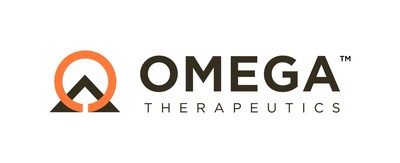Omega Therapeutics to Unveil Preclinical Data on Epigenomic Programming of MYC with Epigenomic Controllers as a Promising Therapeutic Approach in Non-Small Cell Lung Cancer at the 25th Annual ASGCT Meeting
Omega Therapeutics (OMGA) presented preclinical data demonstrating the effectiveness of its Omega Epigenomic Controllers (OEC) in targeting the MYC oncogene, linked to significant cancer mortality. The OEC shows promise as a standalone or combined treatment for non-small cell lung cancer (NSCLC). Key findings indicate that OEC treatment leads to substantial downregulation of MYC mRNA and protein, enhancing apoptosis in cancerous cells while sparing healthy cells. The results will be discussed at the ASGCT Annual Meeting in Washington D.C. on May 18, 2022.
- OEC treatment significantly downregulated MYC mRNA and protein in NSCLC cell lines.
- In vivo studies showed reduced tumor growth with OEC treatment in murine models.
- OEC demonstrated potential for synergy with standard therapies, enhancing efficacy.
- None.
- Regulation of MYC gene expression via epigenomic programming results in decreased viability of cancer cells in vitro and reduced tumor burden in in vivo xenograft models
- Data demonstrate potential of Omega Epigenomic Controllers (OEC) to be developed as standalone therapy or in combination with standard of care therapies in non-small cell lung cancer (NSCLC)
- Data showcase capabilities of the OMEGA platform to identify key epigenomic intervention points and engineer programmable epigenetic mRNA medicines, epigenomic controllers, that precisely and durably regulate gene expression
CAMBRIDGE, Mass., May 3, 2022 /PRNewswire/ -- Omega Therapeutics (NASDAQ: OMGA) (Omega), a development-stage biotechnology company pioneering the first systematic approach to use mRNA therapeutics as a new class of programmable epigenetic medicines by leveraging its OMEGA Epigenomic Programming™ platform, will present preclinical data on its novel Omega Epigenomic Controller (OEC) to regulate expression of the c-Myc (MYC) oncogene via epigenomic programming in models of NSCLC in a poster presentation at the American Society of Gene & Cell Therapy (ASGCT) 25th Annual Meeting, taking place in Washington, D.C., May 16-19, 2022.
"These preclinical data establish epigenomic programming as a differentiated approach to correct aberrant MYC expression by control of its insulated genomic domain (IGD) in NSCLC, which accounts for almost
Details for the poster presentation:
Title: Novel Epigenetic Targeting of the MYC Oncogene for the Treatment of NSCLC using programmable mRNA therapeutics
Abstract #: 1114
Date and Time: Wednesday, May 18, 2022, from 5:30 p.m. through 6:30 p.m. EDT
Key findings:
- OEC treatment yields precise, targeted changes in the epigenetic landscape of the MYC IGD in NSCLC cell lines
- Epigenetic changes drive robust downregulation of both MYC mRNA and protein in multiple NSCLC cell lines, leading to associated changes in MYC-driven genes and an increase in cell death via apoptosis
- Treatment with the OEC did not strongly impact the viability of healthy primary lung epithelial and endothelial cells
- Combining OEC treatment with either a MEK or EGFR inhibitor in NSCLC cells yielded greater reductions in MYC protein and cell viability, suggesting the potential for additive or synergistic effects of the OEC with standard of care therapies in patients
- OEC treatment effectively reduced tumor growth in vivo and was well tolerated in murine xenograft models, further supporting the therapeutic potential of this asset
The poster will be made available on the Omega website following the presentation at https://omegatherapeutics.com/our-science/#publications-research
About Omega Therapeutics
Omega Therapeutics, founded by Flagship Pioneering, is a development-stage biotechnology company pioneering the first systematic approach to use mRNA therapeutics as a new class of programmable epigenetic medicines. The company's OMEGA Epigenomic Programming™ platform harnesses the power of epigenetics, the mechanism that controls gene expression and every aspect of an organism's life from cell genesis, growth, and differentiation to cell death. Using a suite of technologies, paired with Omega's process of systematic, rational, and integrative drug design, the deterministic OMEGA platform enables control of fundamental epigenetic processes to correct the root cause of disease by returning aberrant gene expression to a normal range without altering native nucleic acid sequences. Omega's modular and programmable mRNA epigenetic medicines, Omega Epigenomic Controllers™, target specific epigenomic loci within insulated genomic domains, EpiZips™, from amongst thousands of unique, mapped, and validated genome-wide DNA-sequences, with high specificity to durably tune single or multiple genes to treat and cure diseases through Precision Genomic Control™. Omega is currently advancing a broad pipeline of development candidates spanning a range of disease areas, including oncology, regenerative medicine, multigenic diseases including immunology, and select monogenic diseases.
For more information, visit omegatherapeutics.com, or follow us on Twitter and LinkedIn.
Forward-Looking Statements
This press release contains forward-looking statements within the meaning of the Private Securities Litigation Reform Act of 1995. All statements contained in this press release that do not relate to matters of historical fact should be considered forward-looking statements, including without limitation statements regarding details of the presentation; potential of OEC to be developed as standalone therapy or in combination with standard of care therapies in NSCLC; the capabilities of our OMEGA Epigenomic Programming™ platform; the therapeutic potential of OEC treatment; and our product pipeline. These statements are neither promises nor guarantees, but involve known and unknown risks, uncertainties and other important factors that may cause our actual results, performance or achievements to be materially different from any future results, performance or achievements expressed or implied by the forward-looking statements, including, but not limited to, the following: the novel technology on which our product candidates are based makes it difficult to predict the time and cost of preclinical and clinical development and subsequently obtaining regulatory approval, if at all; the substantial development and regulatory risks associated with epigenomic controller machines due to the novel and unprecedented nature of this new category of medicines; our limited operating history; the incurrence of significant losses and the fact that we expect to continue to incur significant additional losses for the foreseeable future; our need for substantial additional financing; our investments in research and development efforts that further enhance the OMEGA platform, and their impact on our results; uncertainty regarding preclinical development, especially for a new class of medicines such as epigenomic controllers; the fact that our product candidates may be associated with serious adverse events, undesirable side effects or have other properties that could halt their regulatory development, prevent their regulatory approval, limit their commercial potential, or result in significant negative consequences; the impact of increased demand for the manufacture of mRNA and LNP based vaccines to treat COVID-19 on our development plans; difficulties manufacturing the novel technology on which our OEC candidates are based; our ability to adapt to rapid and significant technological change; our reliance on third parties for the manufacture of materials; our ability to successfully acquire and establish our own manufacturing facilities and infrastructure; our reliance on a limited number of suppliers for lipid excipients used in our product candidates; our ability to advance our product candidates to clinical development; and our ability to obtain, maintain, enforce and adequately protect our intellectual property rights. These and other important factors discussed under the caption "Risk Factors" in our Annual Report on Form 10-K for the period ended December 31, 2021, and our other filings with the SEC could cause actual results to differ materially from those indicated by the forward-looking statements made in this press release. Any such forward-looking statements represent management's estimates as of the date of this press release. While we may elect to update such forward-looking statements at some point in the future, we disclaim any obligation to do so, even if subsequent events cause our views to change.
Contacts
Media contact:
Jason Braco
LifeSci Communications
646.751.4361
jbraco@lifescicomms.com
Investor contact:
Kevin Murphy
Argot Partners
212.600.1902
ArgotOmega@argotpartners.com
![]() View original content to download multimedia:https://www.prnewswire.com/news-releases/omega-therapeutics-to-unveil-preclinical-data-on-epigenomic-programming-of-myc-with-epigenomic-controllers-as-a-promising-therapeutic-approach-in-non-small-cell-lung-cancer-at-the-25th-annual-asgct-meeting-301537826.html
View original content to download multimedia:https://www.prnewswire.com/news-releases/omega-therapeutics-to-unveil-preclinical-data-on-epigenomic-programming-of-myc-with-epigenomic-controllers-as-a-promising-therapeutic-approach-in-non-small-cell-lung-cancer-at-the-25th-annual-asgct-meeting-301537826.html
SOURCE Omega Therapeutics








